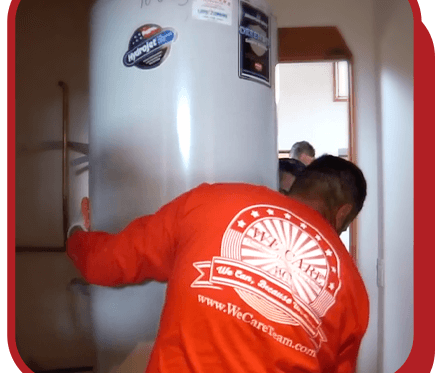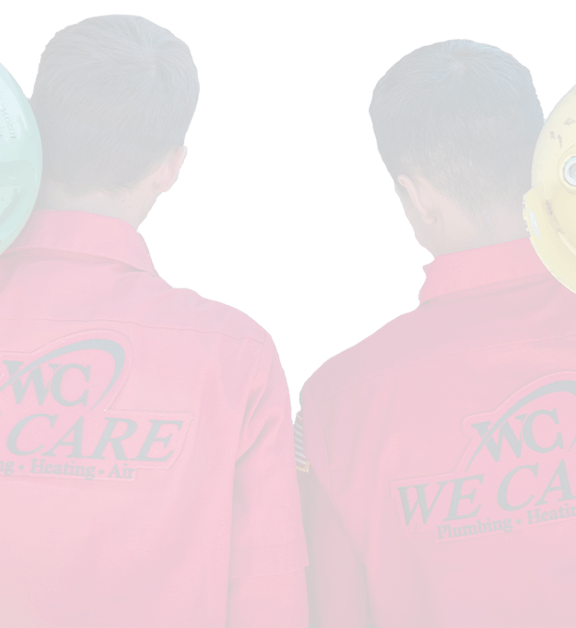Hard water can be a nuisance for your plumbing system, clothes, utensils, hair, and skin. For that reason, you may be contemplating getting a water softener system for your home, but is it worth it?
What Is Hard Water?
Hard water is water that contains dissolved minerals, especially calcium and magnesium, in high concentrations. While these minerals are not toxic and do not change the taste or smell of water, they are still harmful.
The effects of hard water include:
- Hard mineral deposits in plumbing systems, fixtures and appliances
- Cloudy water spots on kitchen countertops, silverware, bathtubs and shower enclosures
- Reduced lathering and rinsing ability of soaps, detergents and shampoos
- Dry and itchy skin
- Dull and dry hair
How to Tell If Your Household Has Hard Water
You can determine whether your household water is hard or not by taking a water sample to a certified water-testing laboratory. This is the most accurate method since you will receive a full report showing a detailed analysis of the minerals and other substances present in your household water. Alternatively, you can buy an in-home water test kit and conduct the test on your own.
A more affordable option is to use a 16-ounce water bottle. To this, add half a cup of tap water and about 10 drops of liquid dish detergent. Vigorously shake the bottle for up to 30 seconds. If thick lather forms on top of the water, your water is not hard. But if the water turns cloudy with little to no lather, then your water probably is hard.
Judging Water Hardness
Water hardness is measured in either milligrams per liter (mg/L) or grains per gallon (gpg). Water at 1.0 gpg or below is considered soft water, while water at 3.5 to 7.0 gpg is considered moderately hard.
Water Softening Is the Solution to Hard Water
Hard water effects can range from annoying to harmful. Fortunately, there is a solution: Install a water softening system. Whole-house water softeners come in various sizes and styles to suit your needs. The system is usually installed in the basement, utility closet, garage, or wherever the water inlet is located.
A water softener consists of a tall and narrow softener tank as well as a short and wide brine tank. The softener tank is linked to the water supply line, and a narrow fill tube connects the softener tank to the brine tank. A discharge hose drains the softener tank.
How a Water Softener System Works
A water softening system works to remove calcium and magnesium ions found in hard water, replacing them with sodium ions. The water softener system is usually installed in the household’s plumbing, where the water flows into the house. This is to ensure that water undergoes softening as it enters the residence. Water is then softened for both drinking and washing. Irrigation water does not undergo this process.
Water softening systems usually have porous plastic resin that is covered with substances that attract and bind positive ions in the water. Usually, the plastic resin is covered with positive sodium ions. When water flows over it, calcium and magnesium ions are attracted and bound to it in a process called ion exchange. Sodium ions are then released into the water to balance the resin’s electrical charge.
Gradually, all sodium ions are released into the water, leaving the resin saturated with calcium and magnesium ions. In that case, you are required to rinse the resin every few days with a concentrated solution of saltwater. This action allows the sodium ions in the salty water to displace the calcium and magnesium ions on the resin, leaving it coated with sodium ions again.
In the case of an automatic system, when the resin beads become saturated, an onboard computer conducts a calculation of the amount of water that has undergone softening. If the total reaches the preprogrammed setting, the flushing or regeneration of the resin beads takes place.
During the regeneration process, salty water from the brine tank goes up the fill tube and flows into the softener tank. The salty water starts the rinse cycle, and mineral deposits are washed off from the resin beads. Afterward, the rinsing water and the mineral deposits are flushed out through the discharge hose, and the system goes back to the softening process.
There are different types of water softeners. Let’s examine them.
Salt-Based Ion Exchange Water Softeners
This is the most popular household water softener that is used for an entire home. This softener has two water tanks, a softener tank, and a brine tank. It features resin beads where ion exchange takes place. Hard minerals — calcium and magnesium — are attracted while sodium ions are released to soften the water.
Salt-Free Water Softener Systems
For users with concerns about sodium intake, this system works perfectly. Instead of sodium, this water softener uses potassium chloride, which is swapped with the hard minerals. However, this system does not remove hard minerals. Instead, it prevents them from leaving mineral deposits in pipes. The method is similar to how descaling systems work.
Dual-Tank Water Softener Systems
Water softener systems that have only one tank face a major challenge when the systems go offline to regenerate. In dual-tank water softener systems, this shortcoming is taken care of because there is a separate tank for regeneration that allows the softening tank to carry on with its work.
The dual-tank water softener system is ideal for large families with huge water consumption needs. It also works well for areas where water is very hard.
An advantage of the dual-tank system is that you can find tanks in smaller sizes and at affordable prices, which is not always the case with a single-tank system.
Magnetic Water Softener (Descaler Products)
This water softener is connected to an incoming pipe. It emits a magnetic field, which transforms the properties of minerals, preventing them from building up in the pipes. In essence, these products do not soften water; they provide descaling solutions instead.
Benefits of Water Softener Systems
The water softening process provides tremendous benefits These include:
- Clean and shiny silverware, glassware, tiles, mirrors and cars
- Improved appearance of hair and skin
- Brighter and softer fabrics
- Improved lathering and rinsing ability
- Greater longevity for dishwashers and water heaters
- Plumbing pipes, fixtures and appliances free from clogs
- Savings on monthly utility bills and general repair costs
Points to Consider
Water softeners should be installed by certified professional plumbers. Additionally, it’s worth noting that softened water normally contains trace amounts of salt. Therefore, users on strict sodium-free diets should opt for salt-free water softener systems.
Salty water discharged from water softeners has raised sodium levels in reservoirs, municipal water treatment plants, and groundwater tables. New legislation in some states has restricted the use of water softeners. Be sure to follow the local guidelines in your region.
If your state has no restrictions, you can install a water softener for your home. It is recommended to have a contractor inspect your water softener system annually.
Rely on Your Local Experts
Water softeners play an important role in household water systems. They provide users with safe and suitable water for drinking and cleaning. To learn more about these systems and choose one that would suit your household, contact We Care Plumbing, Heating, & Air today. We provide expert plumbing services in Murrieta, Orange, Temecula, and throughout Southern California. Apart from plumbing services, we also provide our clients with expert heating and air conditioning installation, maintenance, and repair. Our emergency repair service is available on a 24/7 basis. Call us today!







